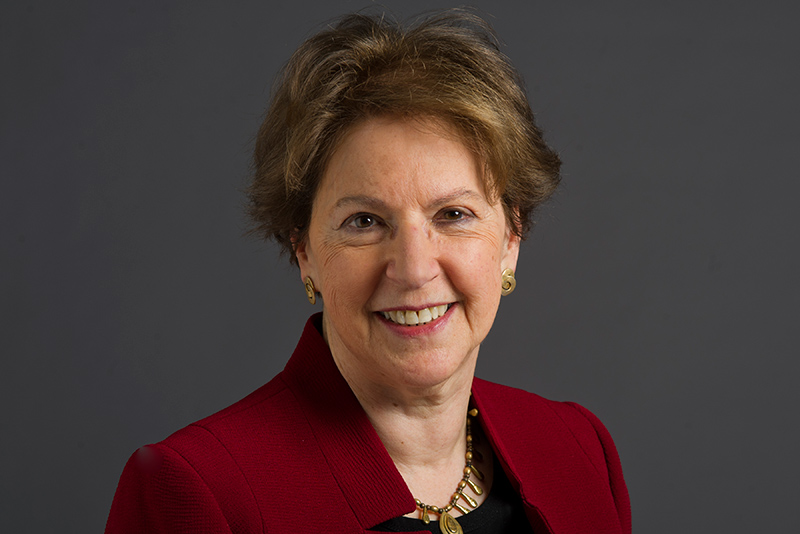Kopell Wins Israeli Nonprofit’s Mathematical Neuroscience Prize
Israel nonprofit honors prof’s research in the brain dynamics underlying cognitive function

Nancy Kopell, William Fairfield Warren Distinguished Professor in Boston University’s College of Arts & Sciences and co-director of BU’s Center for Computational Neuroscience & Neural Technology (CompNet), has been awarded the $100,000 Mathematical Neuroscience Prize by the nonprofit Israel Brain Technologies (IBT).
Kopell, a professor of applied mathematics and dynamical systems, is one of two 2015 winners of the prize, which honors researchers who have significantly advanced our understanding of the neural mechanisms of perception, behavior, and thought through the application of mathematical analysis and theoretical modeling. The other recipient is G. Bard Ermentrout, Distinguished University Professor at the University of Pittsburgh.
“I’m highly honored by this award,” says Kopell, “and in this time of federal budget cutbacks, the flexible funds that come with the award will be very useful in keeping my work on brain dynamics going. I’m very grateful to Israel Brain Technologies for sponsoring this prize.”
Kopell is the director of the Cognitive Rhythms Collaborative, a group of scientists in the Boston area who work together to advance the understanding of the brain dynamics underlying cognitive function in areas such as sensory processing, attention, learning, memory, and motor planning.
“We are delighted that Nancy has received the $100,000 Mathematical Neuroscience Prize from Israel Brain Technologies,” says Tasso Kaper, chair of the mathematics and statistics department. “She is one of the founders and international trendsetters of the field of mathematical neuroscience. Indeed, soon after she completed her PhD in pure mathematics at UC Berkeley, she began working on mathematical models in biology, including those of electrical activity in nerve cells. Over more than three decades, she has made critical discoveries about brain rhythms and the roles these rhythms play in cognition, motor control, sleep, attention, memory, Parkinson’s disease, schizophrenia, and alternate states of consciousness such as those induced by anesthesia. Through her mathematical research laboratory and famous weekly NaK [neural dynamics group] meetings, she has also trained many scientists who work in the field of mathematical neuroscience.”
Kopell is a member of the National Academy of Sciences and the American Academy of Arts and Sciences. She is an honorary member of the London Mathematical Society, a distinction given to only one or two mathematicians each year. She has also been awarded Sloan, Guggenheim, and MacArthur fellowships.

Comments & Discussion
Boston University moderates comments to facilitate an informed, substantive, civil conversation. Abusive, profane, self-promotional, misleading, incoherent or off-topic comments will be rejected. Moderators are staffed during regular business hours (EST) and can only accept comments written in English. Statistics or facts must include a citation or a link to the citation.